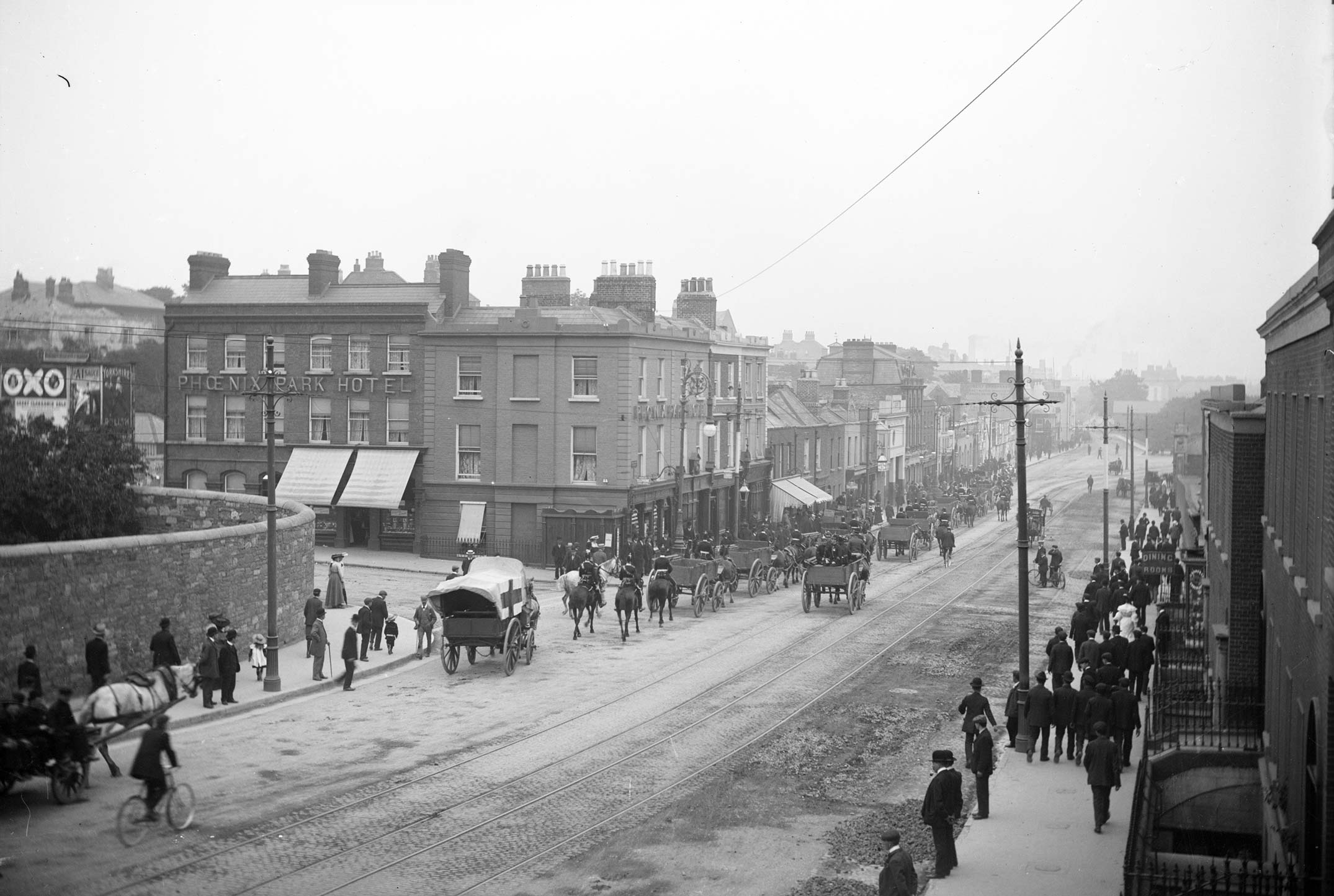Police seek early closing time for Dublin pubs
All pubs to shut at 8pm
Police in Dublin today made an application to the courts to have closing time of Dublin’s pubs, clubs and hotels set at 8pm every evening.
The application was made before the Recorder of Dublin at the City Sessions in Green Street Court by the Chief Commissioner of Police William Davies.
In moving the application, the Solicitor-General of Ireland James O’Connor said that it was one to which the War Office and the Executive Government in Ireland attached great importance.
Mr. O’Connor informed the court: ‘The order was essential for the preservation of the efficiency of the troops, who are about to be engaged in a life-and-death struggle with the enemy.’
‘These troops are now liable to extra temptation during the war. The reason for this is that people are inclined to drink rather more than usual in times of great excitement, and also to show their appreciation of the soldiers by extra treating.’
Mr James O'Connor, the Solicitor-General, stated that the earlier closing time was 'essential for the preservation of the efficiency of the troops'. (Image: Irish Life, 10 July 1914. Full collection of Irish Life available from the National Library of Ireland.)
Mr. O’Connor told the court that at the present moment there were more than 11,000 troops in the city - about 6,000 more than usual - and a great many of these were young men who were very susceptible to temptation.
He said that there was overwhelming evidence that drunkenness in Dublin was appalling since the mobilisation. For example, on Saturday night, 31 October, out of 5,000 troops who had leave that night, 657 returned under the influence of alcohol and there was also considerable drinking amongst the wives of reservists in the city.
The Recorder of Dublin noted in passing that he was entirely against the abuse of alcohol but it did not seem appropriate to treat of Dublin - a capital city - as if it were a mere little garrison town.
Tim Healy KC, representing the Licensed Grocers’ and Vintners’ Association, noted that officers in barracks were free to drink away after 8pm and that the officers’ mess closed only when the officers decided to go to bed: ‘Inside the barracks it is recreation, and outside it is drunkenness.’
The court heard also that the average number of soldiers drunk on any given day on Dublin’s streets was between 300 and 500.
The case has adjourned and will be heard again next week.






















